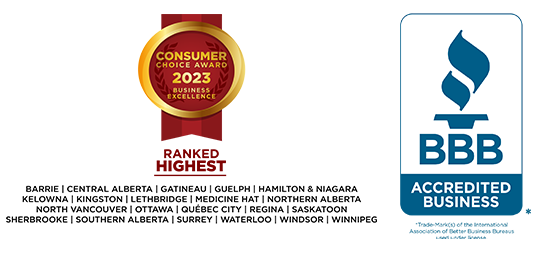British Columbia Consumer Insolvencies Jump 11 Per Cent In The Second Quarter
2019-08-20 minute read
Cash-strapped Canadians may be treating homes like ATMs to pay bills
August 20, 2019 – Underscoring British Columbians' financial vulnerabilities when it comes to consumer debt, the latest official figures from the Office of the Superintendent of Bankruptcy (OSB) continue to reinforce the mounting strain on many households in the province. The number of British Columbians who filed for insolvency in the second quarter of 2019 was up 11.1 per cent compared to the first quarter and up 5.2 per cent compared to the same quarter of last year.

Lana Gilbertson, a Vancouver-based Licensed Insolvency Trustee with MNP LTD, the country's largest insolvency firm, says that many people in the province may still be ramping up borrowing against their homes to pay other debts, even as the real estate market appears to be slowing. She says that home equity lines of credit (HELOCs) have emerged as one of the biggest contributors to the growth of household debt, particularly in markets like BC where real estate values have surged over the last decade.
"There is a lot of uncertainty that comes with HELOCs so this type of debt is particularly troublesome for those who don't have firm financial footing. It can put people on the fast track to an endless cycle of debt, especially if the borrower accumulates more debt on the credit cards after paying them off with a HELOC," says Gilbertson.
According to a new survey conducted by Ipsos on behalf of MNP LTD, three in ten (27%) Canadian homeowners with a HELOC say they have used the funds borrowed to pay down other debts. Over a third (36%) say they have used the money to do things they otherwise wouldn't have been able to do, such as home renovations.
"Those who are already cash-strapped or unable to meet other debt repayment obligations may think a HELOC will help them make ends meet but taking on more debt only puts them at greater risk of foreclosure or insolvency. Anyone struggling financially should seek professional financial guidance to help deal with their debt rather than taking on more," advises Gilbertson.
The survey showed that only about one in seven (14%) Canadians say have used their HELOC to fund discretionary purchases, such as a vacation or new car. Just about one in ten (9%) say they have used their HELOC to invest in other real estate investments.
"Paying off the mortgage used to be an important financial goal for people but more often we see people using their home as an ATM. The cash withdrawn is being used to pay other bills or to fuel household spending. Many will struggle with this debt in the long run," she says.
About one in seven (14%) Canadians with a HELOC say that they regret the amount they've borrowed against their home and the same proportion (14%) say that they are concerned about paying off their HELOC.
About MNP LTD
MNP LTD, a division of the national accounting firm MNP LLP, is the largest insolvency practice in Canada. For more than 50 years, our experienced team of Licensed Insolvency Trustees and advisors have been working with individuals to help them recover from times of financial distress and regain control of their finances. With more than 230 Canadian offices from coast-to-coast, MNP helps thousands of Canadians each year who are struggling with an overwhelming amount of debt. Visit MNPdebt.ca to contact a Licensed Insolvency Trustee or use our free Do it Yourself (DIY) debt assessment tools.
MNP LTD is the creator of the MNP Consumer Debt Index, an industry-leading national barometer of financial pressure among Canadians.
About the Survey
The survey was compiled by Ipsos on behalf of MNP LTD between June 14 and June 17, 2019. For this survey, a sample of 2,111 Canadians aged 18 years and over was interviewed. The precision of Ipsos online polls is measured using a credibility interval. In this case, the poll is accurate to within ±2.4 percentage points, 19 times out of 20, had all Canadian adults been polled. The credibility interval will be wider among subsets of the population. All sample surveys and polls may be subject to other sources of error, including, but not limited to coverage error, and measurement error.

